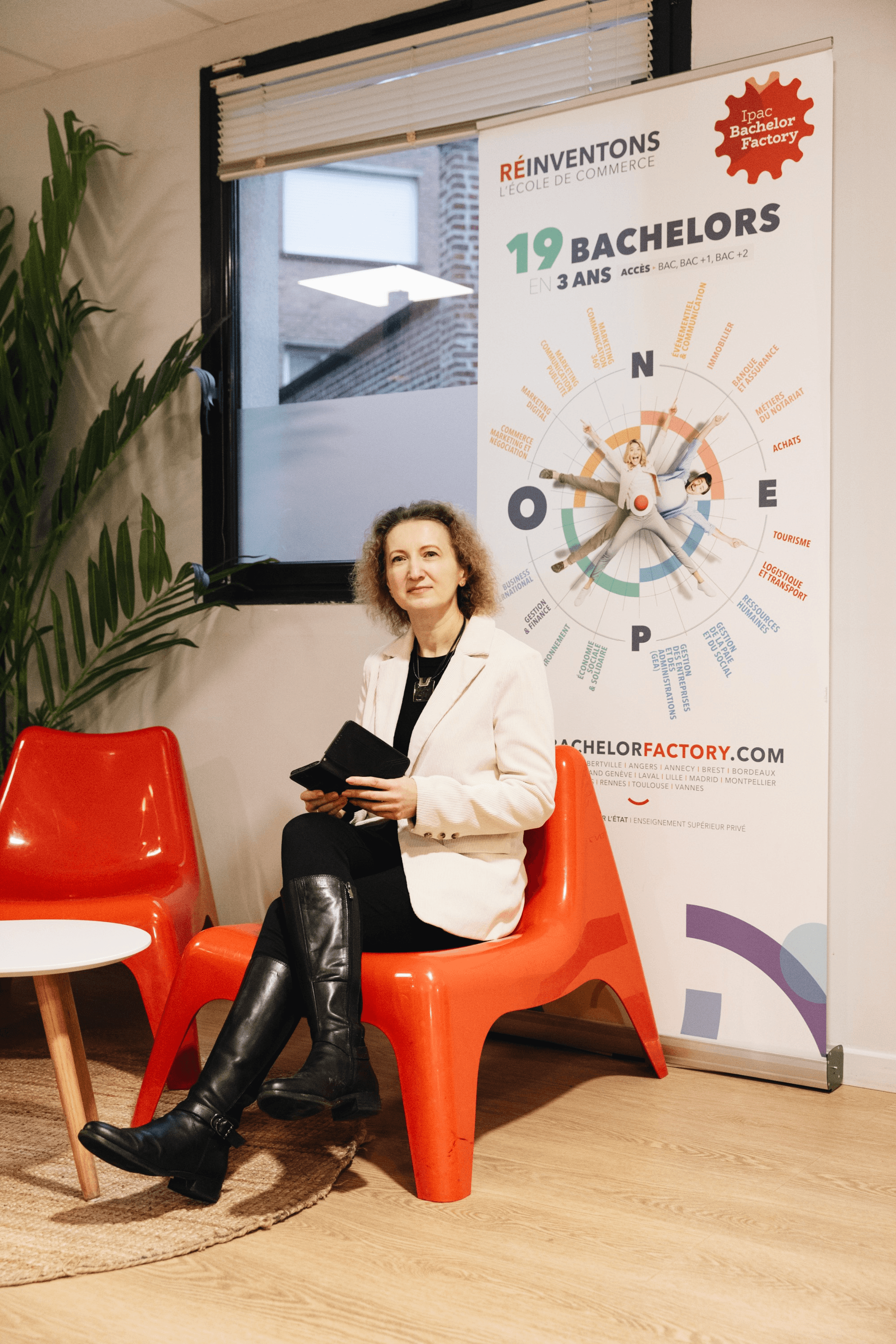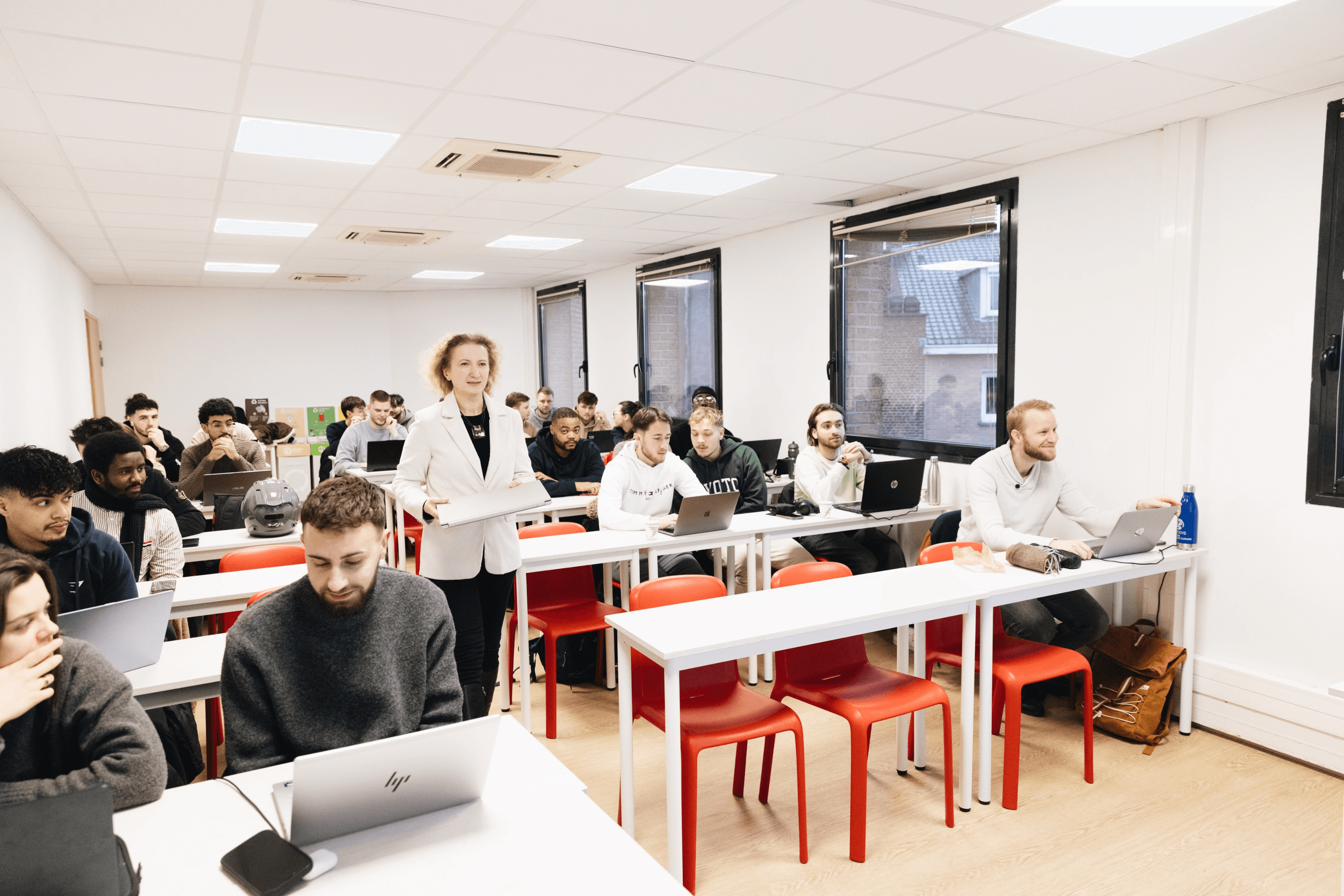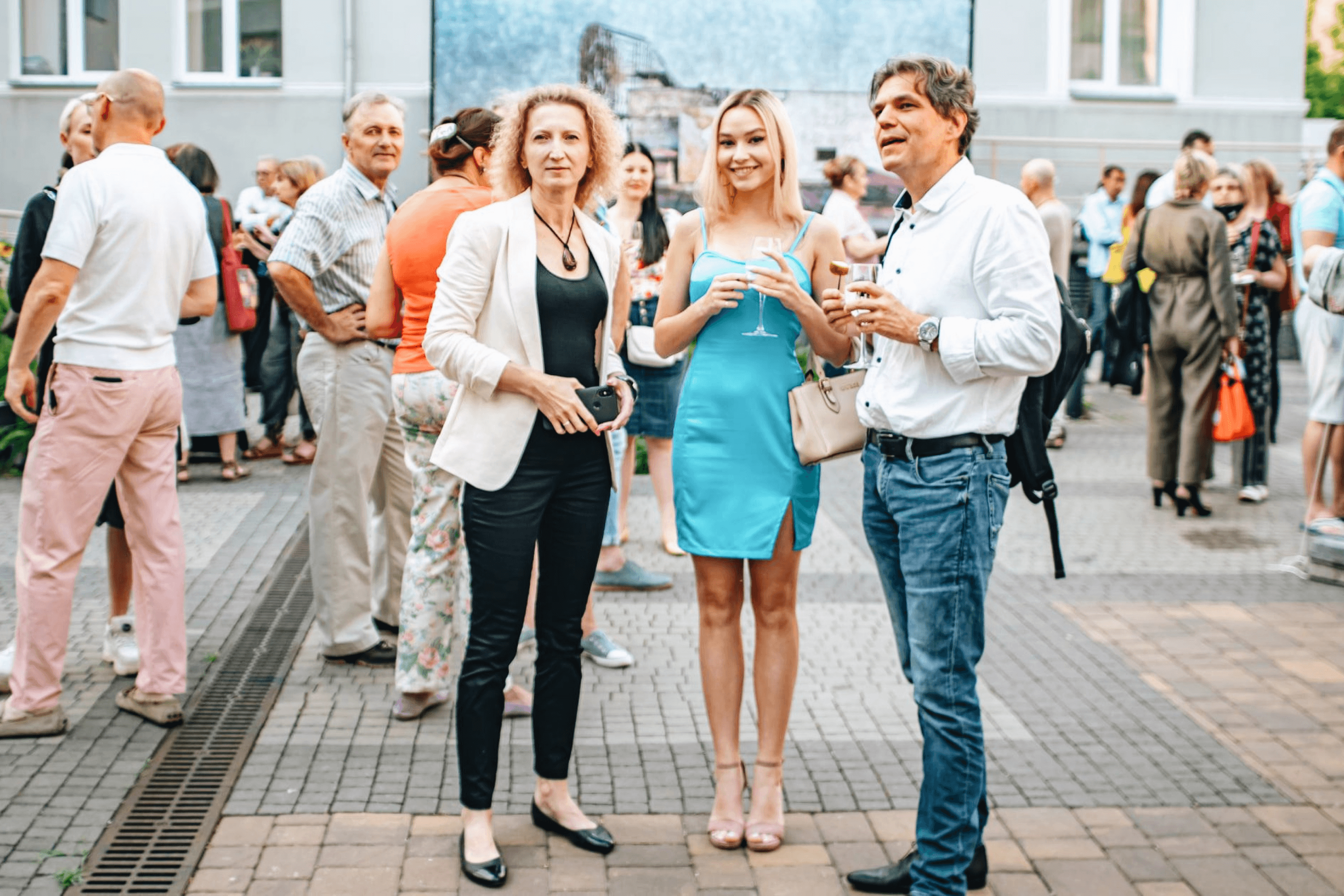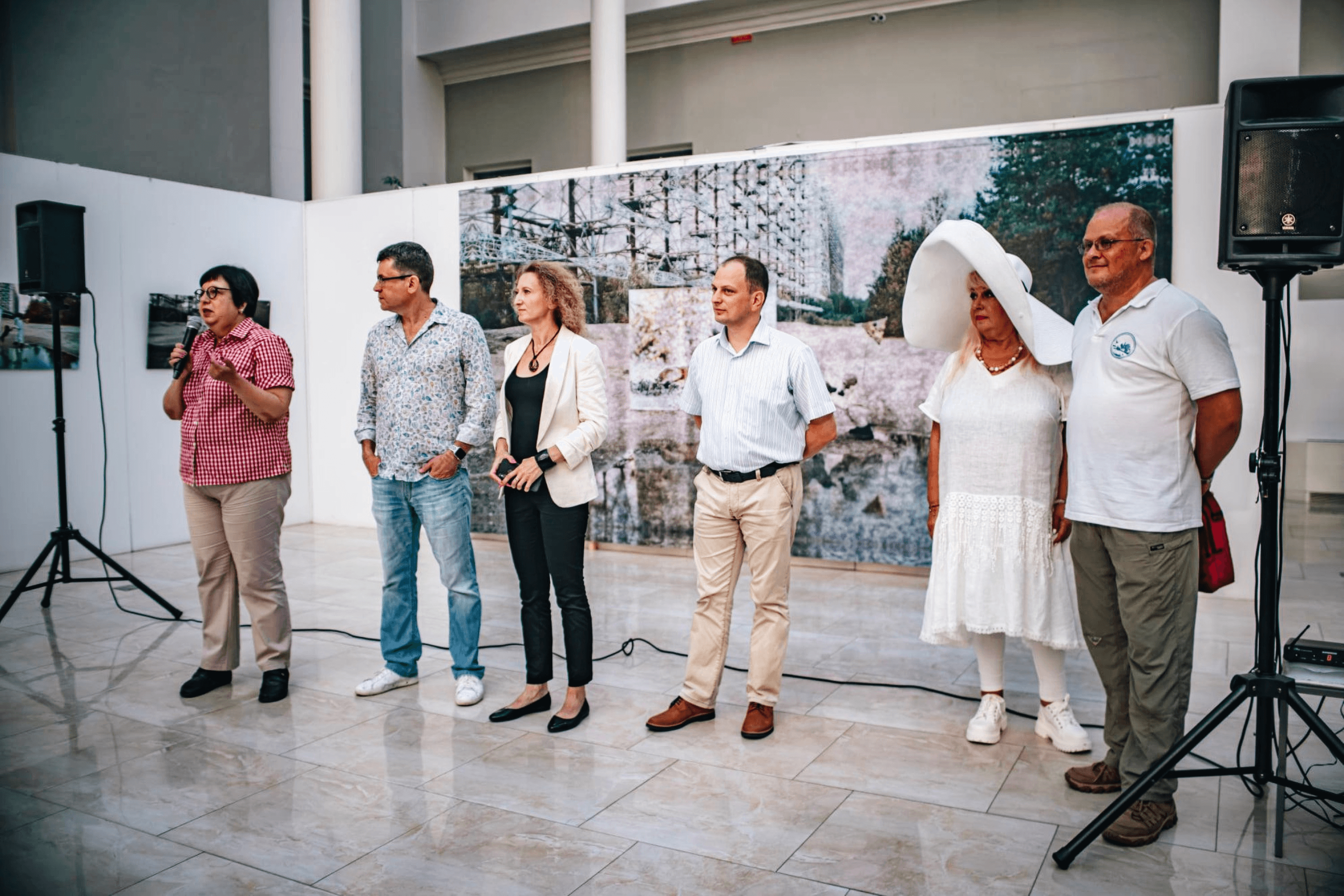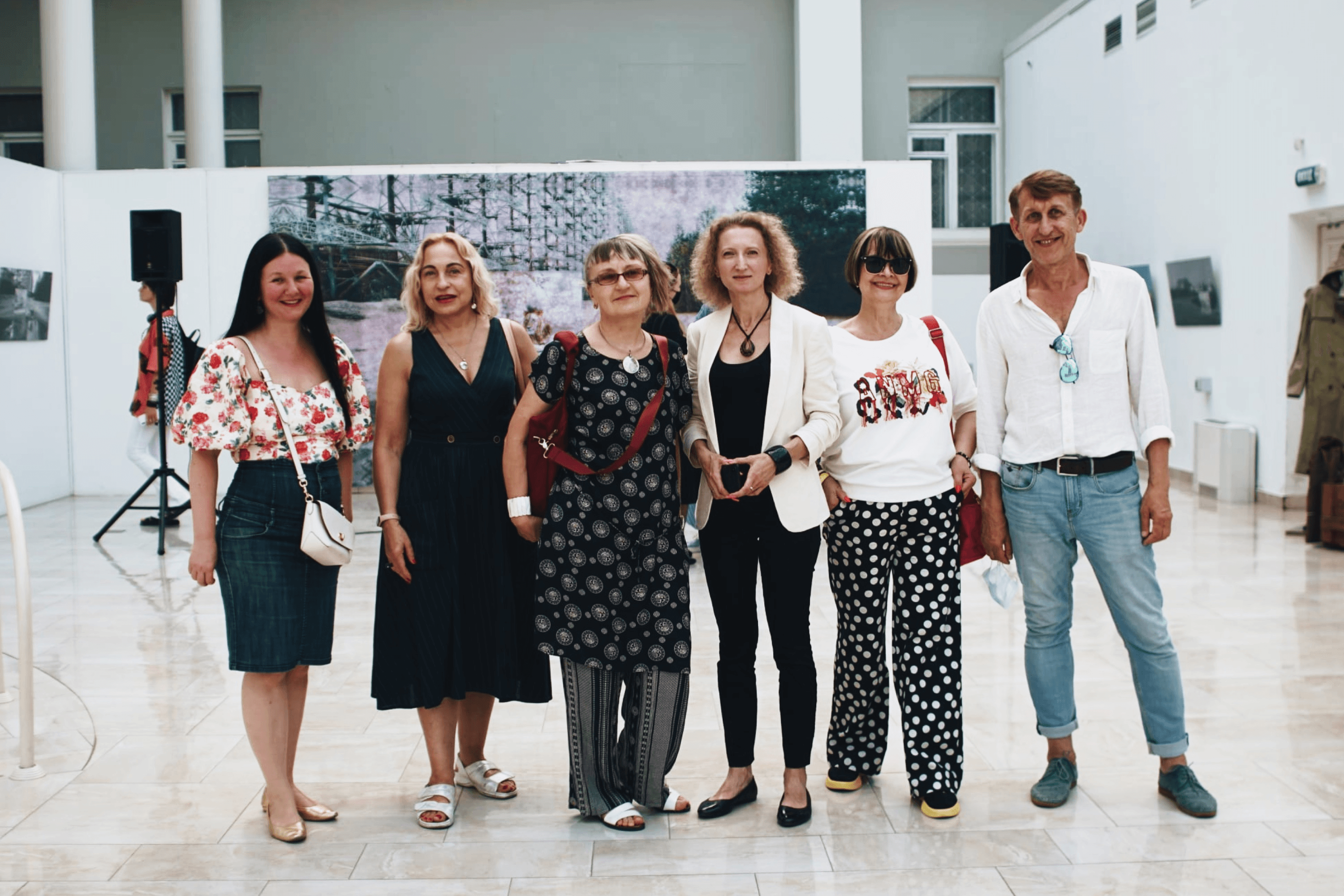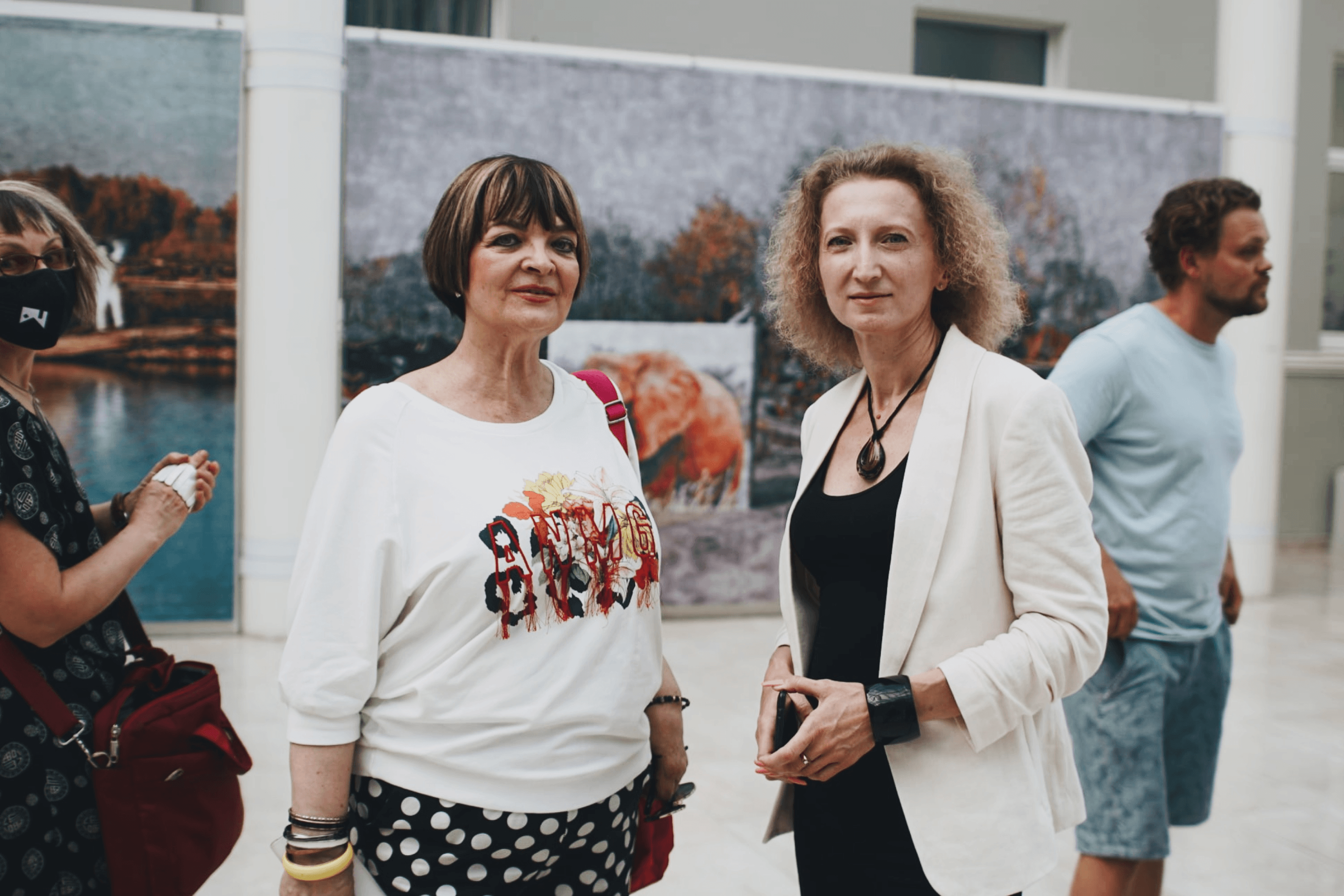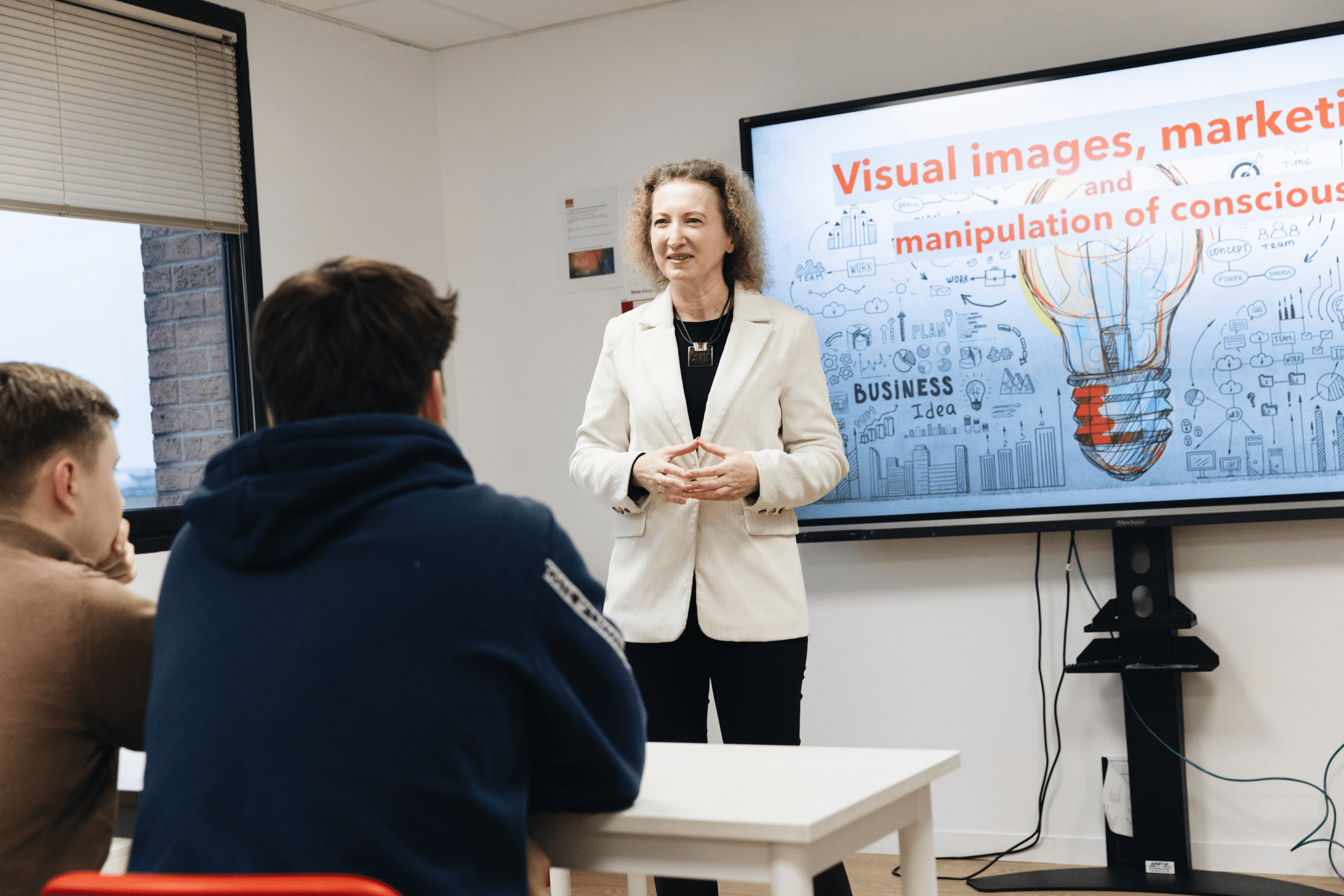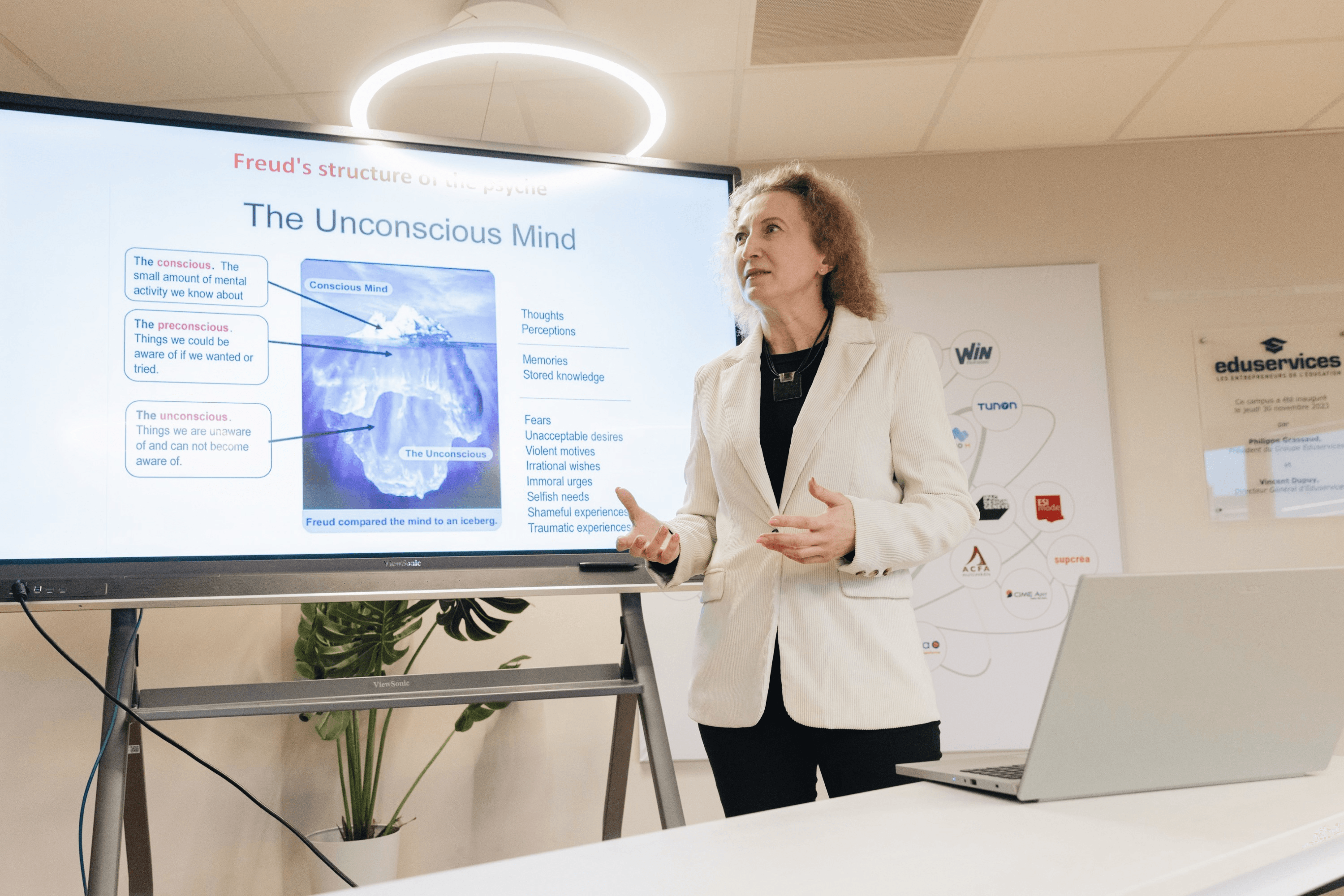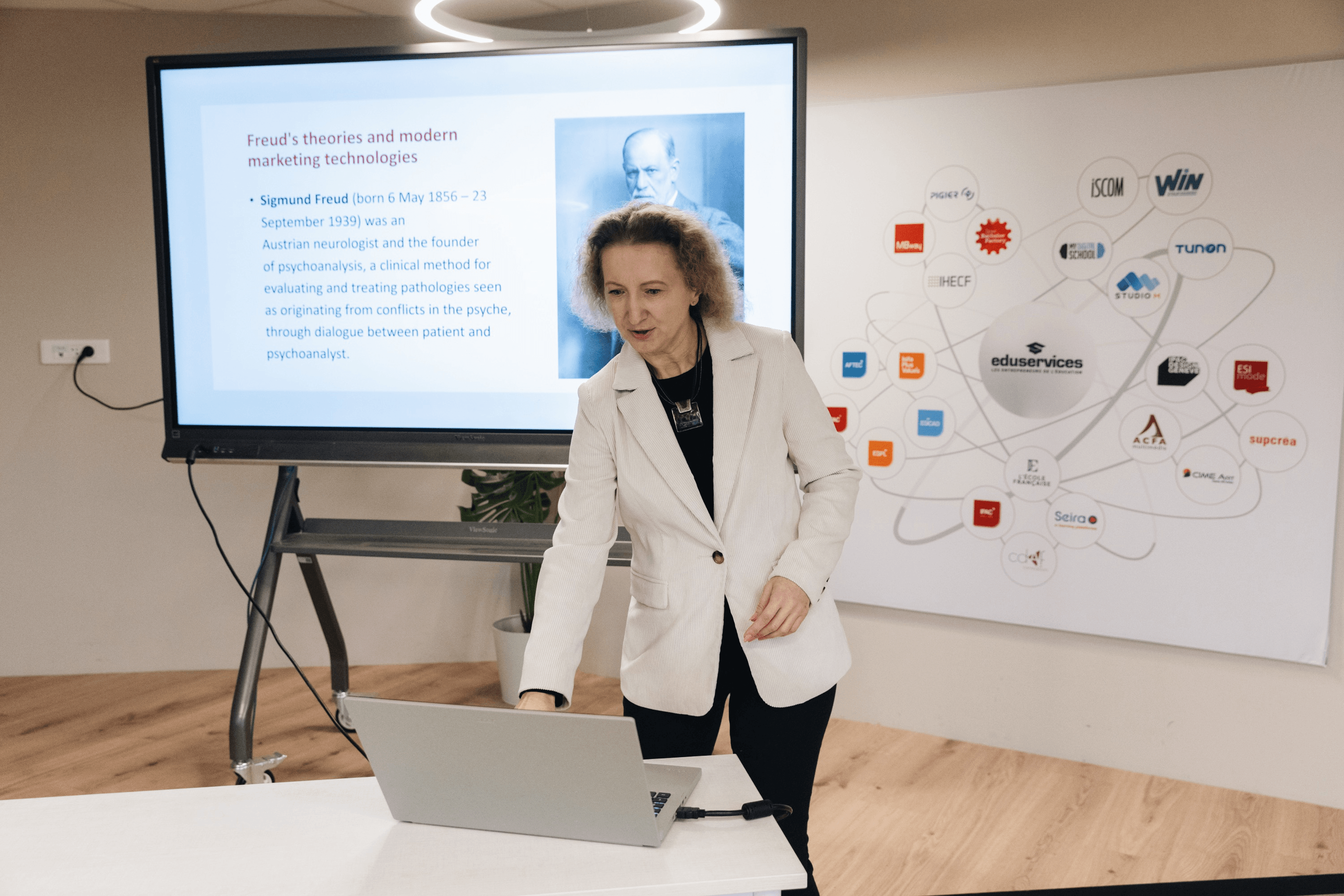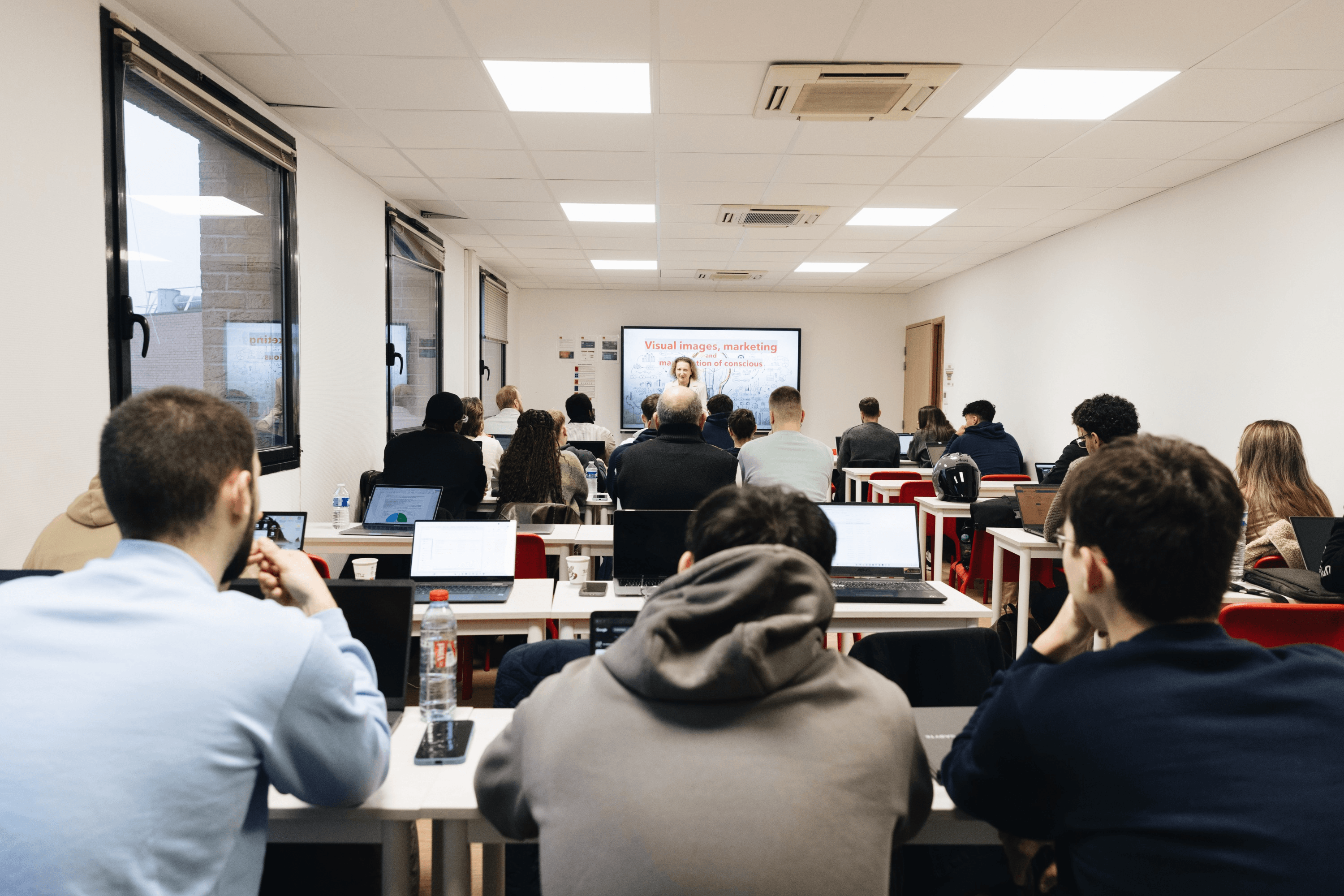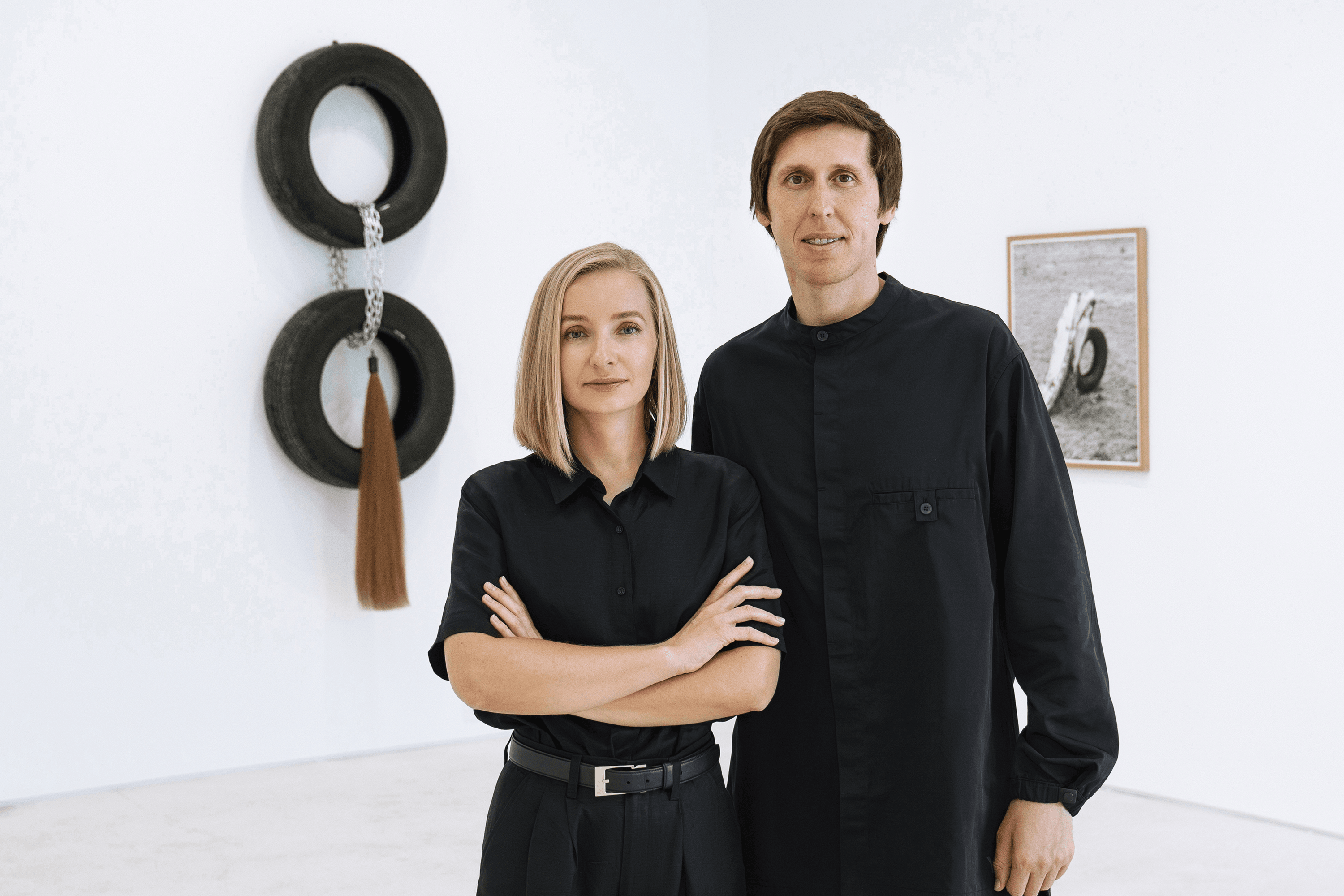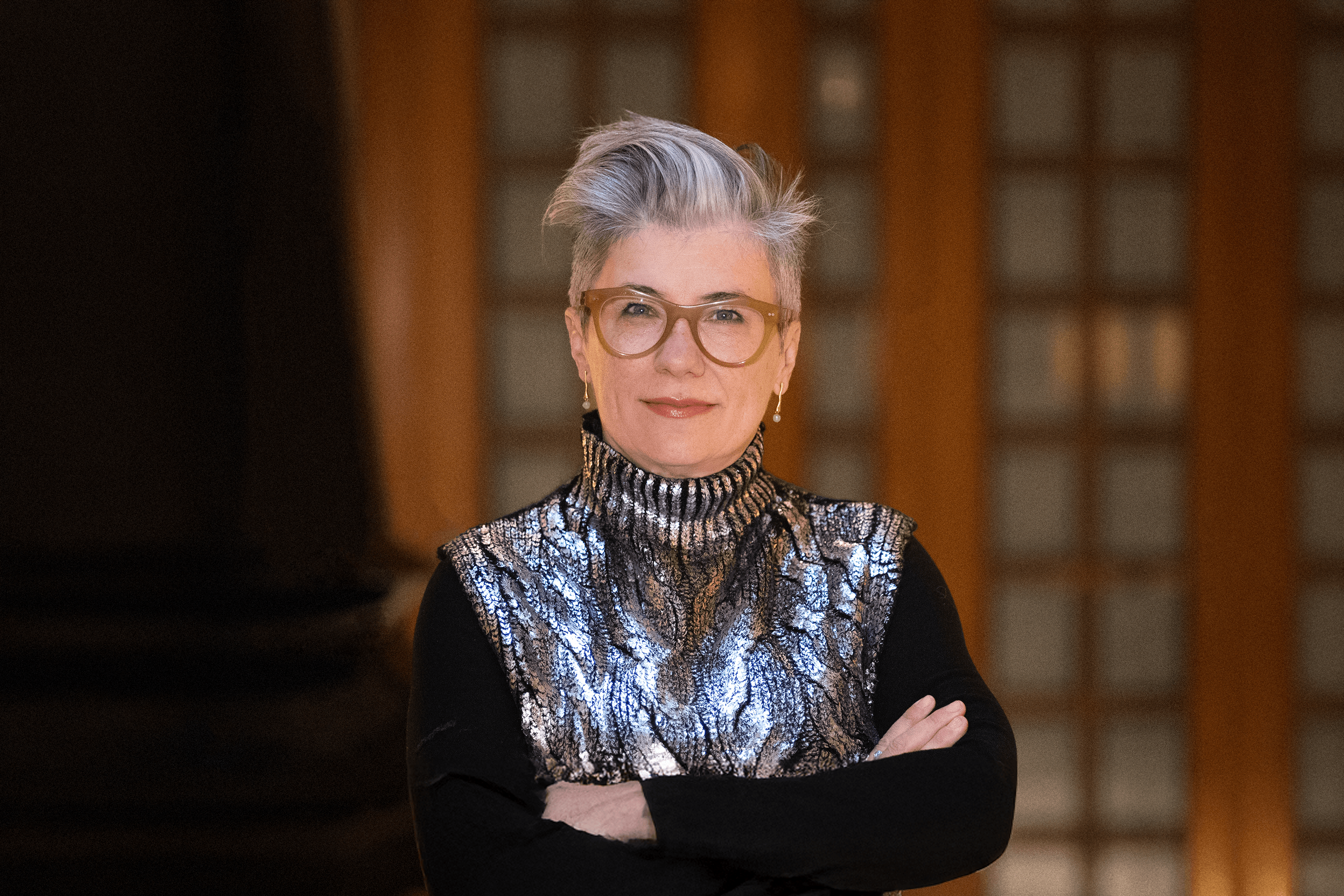Svitlana Stoyan’s mornings have followed the same routine for the past year. As a lecturer at MBway Lille Business School, she boards an intercity train from Hazebrouck to Lille, flipping through printed lecture notes in English and French. A 51-year-old Svitlana was born and raised in Kyiv. She studied economics and philosophy, worked in taxation and accounting, and spent 17 years teaching art at top universities in Ukraine’s capital. When war broke out in 2022, she relocated to France. In just two years, she learned French, trained at prestigious art institutions, and landed a permanent position at MBway Lille, where she now teaches master’s students. Here’s how she made it happen.
1
Svitlana Stoyan is a native of Kyiv. Her youth unfolded in the turbulent 1990s when Ukraine was painfully shifting from a planned economy to a market-driven one. Rampant crime levels, hyperinflation, and barter in place of salaries were everyday realities. While most people were focused on survival, Svitlana dared to have an untimely dream for the times—to become a teacher.
Svitlana graduated from the State Tax University, where she trained as an auditor. She worked first as a senior inspector in the tax office of Ukraine and later as an accountant in the private sector. During this time, she suffered a hard loss—her father passed away, leaving her responsible for supporting her elderly mother. Still, her passion for teaching never faded. Refusing to let go of her dream, Svitlana enrolled in the faculty of Philosophy part-time program at Taras Shevchenko National University.
«I took a week of unpaid leave to prepare for the exam. If I passed it with top marks, I wouldn’t have to take the others, ” Svitlana recalls. „In 1994, Ukrainian had just been reintroduced as the official language but back then, it hadn’t been taught well in schools. On top of that, my sister arrived with her two little kids, fleeing the war in Azerbaijan. Our three-room apartment suddenly became very crowded: my mother, my sister with her kids, me, and my 93-year-old bedridden grandmother all lived together. I studied at night and spent the days searching for quiet places to prepare. When I finally heard the words ‘top marks, ’ I could hardly believe it.“
In her final year of university, Svitlana and her husband welcomed their daughter Margarita into the world. However, she went straight into a PhD program, never taking maternity leave, and defended her thesis with a three-month-old baby in her arms.
Around the same time, her mother had hip surgery, so Svitlana and her husband moved back in to care for her. «I took care of our daughter majorly on my own. My husband helped, having to work full-time, but money was always tight. Diapers for the baby were a luxury, so we got creative—reusing the dry sections of used ones to make them last longer.
A year later, I started working part-time as a chief accountant. In the evenings, I worked on my dissertation. The exhaustion was overwhelming, sometimes I was so sleep-deprived that I was hearing sounds that weren’t there. But in 2002, I successfully defended my PhD thesis and finally allowed myself to decompress a little.
Svitlana began her teaching career at the age of 31, starting as a psychology lecturer at the National University of Food Technologies. Back then, university salaries were dreadfully low—less than $80 a month—so she had no choice but to keep working part-time in finance to stay afloat. Life soon threw another challenge—Svitlana went through a divorce, ending up the sole provider for her family.
Her new husband was an artist, and with his support, she decided to leave her work in finance behind and pursue teaching full-time. But making a living was difficult, and to make ends meet, she had to combine teaching positions at several universities at once.
«Looking back to that time and honestly don’t know how I did it, ” Svitlana admits. „I was teaching, working on my doctoral dissertation, editing the department’s journal Ukrainian Culturological Studies, taking care of my 14-year-old daughter, and curating exhibitions at top museums across Ukraine. For years, I barely had three days off a year.»
In 2015, Svitlana successfully defended her doctoral dissertation on symbolism in European art at Taras Shevchenko National University. She stayed on as an associate professor in the Department of Ethics, Aesthetics, and Cultural Studies. She taught courses on the history of visual arts, aesthetics, and information and media technologies in culture. Dedicated to her students, she was determined to engage with each one of them, designing unique and engaging personalized assignments. Her colleagues became like family, but the endless bureaucracy and the entitled demands of wealthy students became increasingly frustrating.
Svitlana’s second marriage came to an end after ten years, just like her first one. Then, at 45, she found love again and remarried. Her husband, Oleh, worked for a French company that manufactured clothing in Ukrainian factories. He was fluent in French and frequently traveled to France on business. Svitlana admits that with him, she finally felt truly happy. «My third marriage is built on love, shared interests, and mutual respect for each other’s work.»
2
On the morning of February 24, 2022, Svitlana was in Kyiv. At 5 am, the sound of explosions and air raid sirens woke her up. Without hesitation, she drove to Hostomel to pick up her 23-year-old daughter. The very next day, fierce battles broke out in the town. And when Russian troops were coming closer to Kyiv just five days later, the family decided to leave for Lviv, where they had a place to stay.
«I will never forget the day we left Kyiv. The driver of the car in front of us veered into the oncoming lane of the Zhytomyr Highway to get to the only gas station that still had fuel. I had no choice but to follow, as we had to stay in line, one after another. Military convoys were coming non-stop, and a head-on collision was a huge risk at any second. I didn’t breathe until we finally pulled into that gas station.»
The family spent several months in Lviv. By April 2022, the university resumed online classes, which gave a sense of stability and became a form of therapy for both Svitlana and her students.
Eventually, she returned to Kyiv. But as the missile strikes intensified in October 2022, for the first time, she seriously considered leaving. Their apartment, near the Pokrovsky Monastery and the Artem factory, had no bomb shelters. During air raids, they had no choice but to stay at home and hope for the best.
In November of that year, Svitlana and Oleh left for France, where he had a job. Meanwhile, her daughter moved to Canada to stay with Svitlana’s friend—she wanted to experience life in an English-speaking country.
In France, Svitlana and Oleh bounced from one apartment to another, living out of their suitcases as they changed homes five times. They deliberately chose not to apply for social housing, believing it would be unethical since Oleh was employed.
Renting a home in France isn’t easy for foreigners, and to make things even trickier, most apartments come completely unfurnished. After numerous attempts, Svitlana and her husband finally secured a permanent place to live. The local community generously gifted them essential furniture and household items, while they purchased appliances and kitchenware themselves.
«I’ve always had a soft spot for France, ” Svitlana shares. „People in the North are very kind and compassionate. But to truly settle in and avoid feeling like an outsider, learning the language was crucial—hardly anyone here speaks English.“
Svitlana signed up for French classes, and the financial support that came with them—a €720 monthly stipend from the government—certainly didn’t hurt. Her class was a mix of students at different skill levels, and their instructor, Fabienne, made sure to give each student individual attention. That also meant a lot of self-study at home. Determined to improve quickly, Svitlana filled notebooks with study notes, watched YouTube lectures, and practiced with her husband. In just seven months, she could comfortably hold conversations in French about everyday life.
Once she finished language school, Svitlana decided to continue her education. She enrolled in GRETA Grand Littoral, a program designed to help both locals and newcomers find job opportunities. To be accepted, she had to explain how she could contribute to France. Svitlana presented two options: working as a lecturer or as a curator in the field of arts.
The selection process included two interviews, including a project presentation in French. Out of 48 candidates competing for just 18 spots, Svitlana and two other Ukrainian women made it to the final stage.
«They told me that with my level of education (BAC+8), they can’t put me through additional training. Instead, they’d focus on refining my language skills and helping me find a job. My next challenge was to find three institutions willing to offer me an internship,» Svitlana recalls.
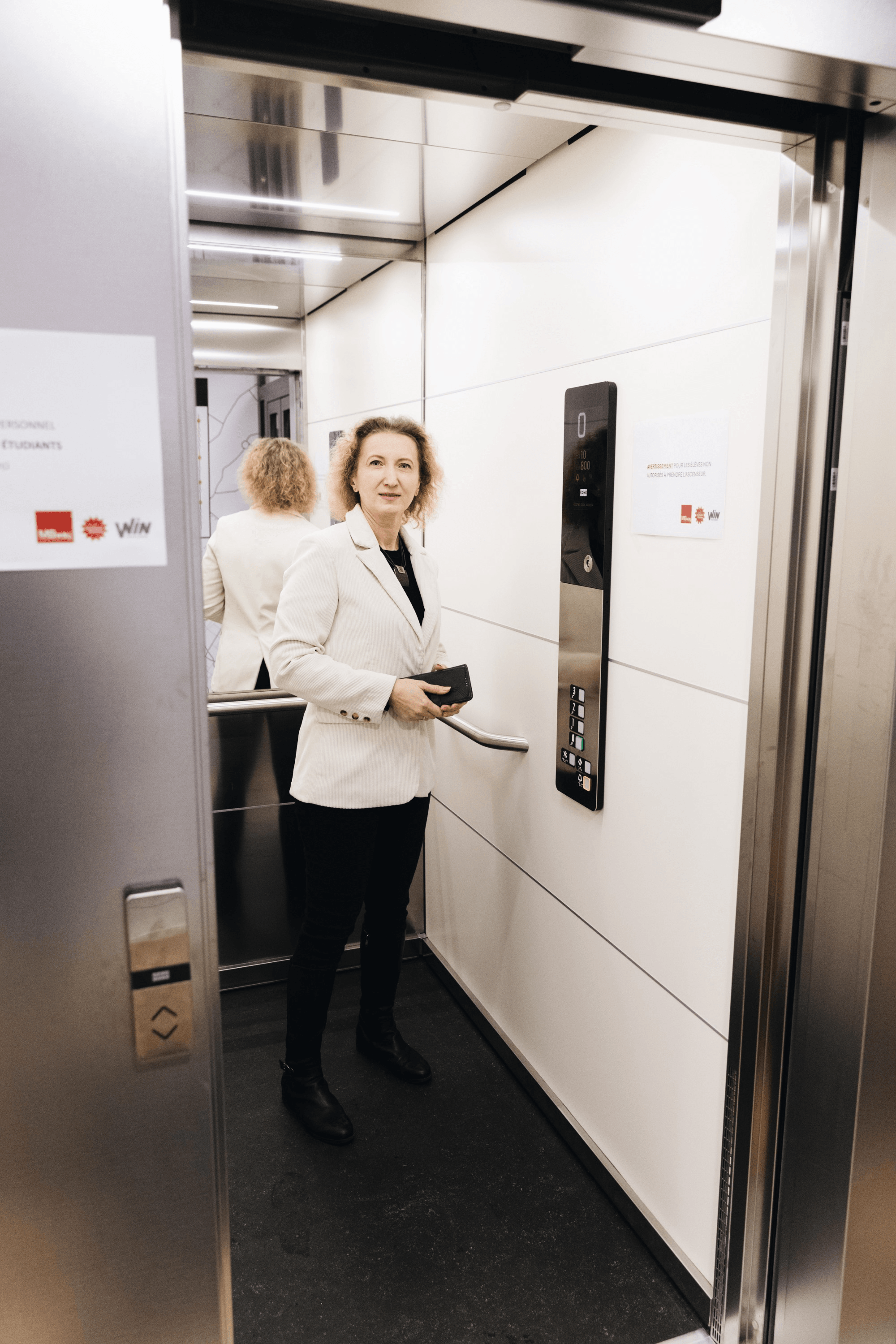
Ms. Stoyan sent out her résumé, wrote cover letters, and went through multiple interviews. Her efforts paid off. She was invited to two renowned art schools in Dunkirk and Roubaix, as well as the Sandelin Museum in Saint-Omer.
At the schools, she delivered lectures in English, while at the museum, she used her internship as an opportunity to give guided tours for Ukrainian refugees. At the same time, she continued teaching online at Taras Shevchenko National University for a year. Balancing everything was exhausting, but financially necessary.
Later, Svitlana came across a job opening for an English-language lecturer at MBway Lille, a higher education business school. The institution has strong ties with 450 French companies, helping students secure internships and jobs. It also hosts high-profile business competitions like the Business Game, Pitch Challenge, and Start-Up Challenge.
«I passed the interview, proposed my own course, and got the job. Initially, I signed a four-month contract, but it soon became a permanent position. My PhD from Taras Shevchenko National University was fully accepted, but just in case, I had it officially recognized in France.»
3
On April 1, 2024, Svitlana Stoyan woke up at 7 a.m. and couldn’t get back to sleep. It was the day she had been preparing for the past two years—her very first lecture at a French university.
Svitlana got to campus a good two hours early. On the train ride from Hazebrouck to Lille, she flipped over her lecture notes in English and French, making sure everything was fresh in her mind. At the university, her colleague Margot welcomed and introduced her to the students. The initial tension faded during the first moments. Her lecture on manipulation through visual images sparked a lively discussion, and she never even had to open her prepared notes.
«As soon as I got home, I just shut down. My brain needed time to process everything, ” Svitlana remembers.
European universities, first and foremost, pay a lot of attention to the development of unique, original courses that reflect the latest trends in their field, taking into account global shifts in technology, culture, and the economy. According to Ms. Stoyan, a lecturer is hired only when they have successfully «sold» their course to the university and proved its value.
Svitlana designed a brand-new course for the University: «Visual Imagery, Marketing, and the Manipulation of Perception.» It combined her love for art with psychology and business. The course explores how visual imagery functions in advertising and marketing, breaking down the psychological processes behind it. During her interview, the course was recognized as internationally relevant, equipping students with critical skills for navigating today’s global economy. «Visuals are a powerful tool for manipulation, and in the modern world, people need to know how to recognize and resist it, ” Svitlana emphasizes.
Svitlana was deeply impressed by the French education system. Compared to Ukraine, it felt more efficient and student-focused. For instance, professors are burdened with excessive paperwork, from preparing lecture plans to reports on completed programs and attending endless department meetings, many of which focus on admin and have little impact on actual teaching. The curriculum is another issue. Most courses in Ukraine emphasize theory rather than practical experience. Instead of fostering critical thinking or hands-on skills, students are often expected to simply memorize facts.
Then there’s the technology gap. Many Ukrainian universities lack essential tools like projectors, interactive whiteboards, computers, and specialized lab equipment like 3D printers or data analysis software, or they are often in very limited supply. As a result, there is a noticeable gap in education quality between Ukrainian and European universities. Teaching methods also differ significantly.
«It’s difficult to imagine a professor in a French university just standing there, reading from a piece of paper like in many Ukrainian universities, ” Svitlana explains. „Students simply wouldn’t pay any attention. The material has to be engaging, relevant, and applicable to real life. Here, professors aren’t forced to plan courses five years ahead as the world changes and education evolves. There’s no need to fill out pointless paperwork too. Every lecture is expected to include visuals and real-world examples.“
Svitlana’s French colleagues warned her that students who struggled with English might tune out, chat too much, or lose focus during lectures. They advised her to deduct points and regularly hold disciplinary talks to keep them in line. But Svitlana chose a different approach. Instead of enforcing strict rules and punishment, she focused on mutual respect. She designed interactive, hands-on assignments that encouraged students to express their individuality and helped them stay engaged. She never had a single conflict in an entire year and at the final lecture, her students gave her a round of applause.
Svitlana stays in touch with her Ukrainian colleagues and students, but she no longer teaches online at Taras Shevchenko National University. The administration gave her a choice: come back or step down. Ms. Stoyan resigned with no regrets as found this pressure inappropriate.
«I’ve always been a fighter, ” Svitlana says. „The harder things got, the harder I pushed. Despair was rare, more often, it was exhaustion and the question: why, why another challenge, when I’ve already overcome so many? I love learning, but sometimes, all I want is a break. And in those moments, I remind myself that there are people back in Ukraine facing even greater hardships. My habit of focusing on the good kept me from breaking. And there was so much good—above all, the sincere support of those around me.“
